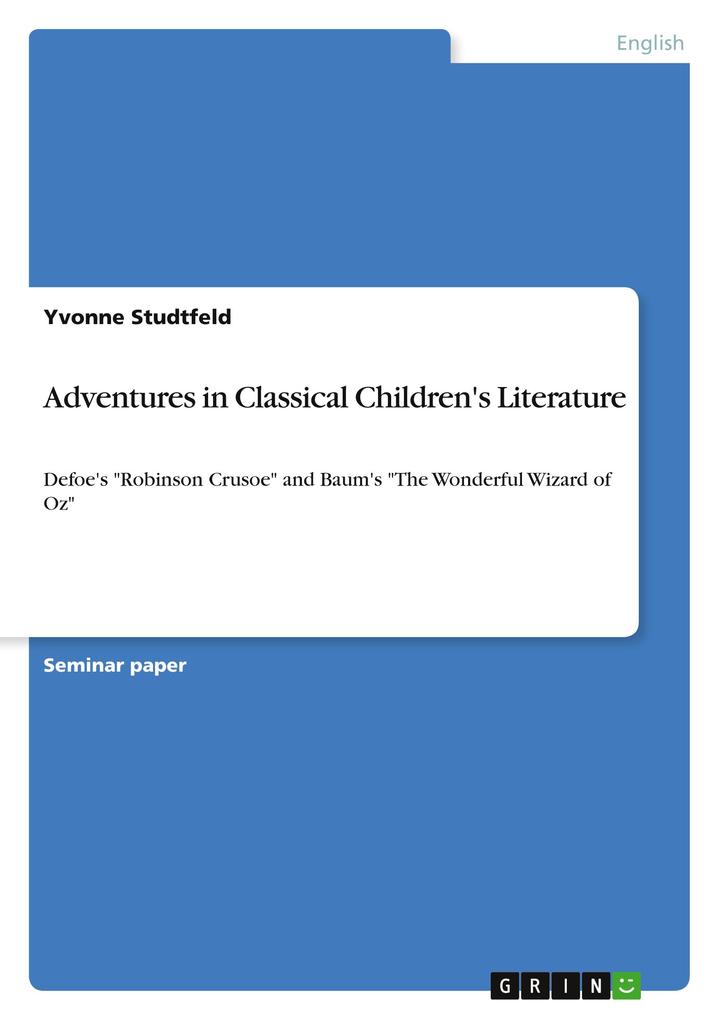Bücher versandkostenfrei*100 Tage RückgaberechtAbholung in der Wunschfiliale
NEU: Das Hugendubel Hörbuch Abo - jederzeit, überall, für nur 7,95 € monatlich!
Jetzt entdecken
mehr erfahren
Zustellung: Mo, 08.09. - Mi, 10.09.
Versand in 2 Tagen
VersandkostenfreiBestellen & in Filiale abholen:
Seminar paper from the year 2007 in the subject English Language and Literature Studies - Literature, grade: 1,3, Christian-Albrechts-University of Kiel (Englisches Seminar), course: Literature for Children and Young Adults: Definition and Historical Survey, language: English, abstract: Adventure is one of the most important topics in fictional children s literature. This can easily be demonstrated by the great number of titles that contain the term. There are Twain s The Adventures of Huckleberry Finn, Carroll s Alice s Adventures in Wonderland or Defoe s The Life and Strange Surprizing Adventures of Robinson Crusoe, just to name a few well-known examples. There is even an own literary subgenre devoted to adventure stories. But why are adventures told? What are their functions in children s literature besides pure entertainment? Provided that books of adventure stories are undoubtedly the most favoured among all children s literature, there is surprisingly little specific material available on this topic. In this paper, two works will be examined to help bridging this gap: Daniel Defoe s Robinson Crusoe and L. Frank Baum s The Wonderful Wizard of Oz. This work proceeds in the following way: After a discussion in how far Robinson Crusoe and The Wonderful Wizard of Oz can be regarded as children s literature, problems arising in treating the adventure concept are outlined. Then, the historic development of adventures in children s literature is presented in a general overview. After this, the two works under examination are used to identify functions of adventures in general with special emphasis on children s literature. Last but not least, the hero as central subject to literary adventures is given attention before summing up the results in a final conclusion. The fact that in this paper only two works can be analyzed exemplarily certainly entails a limitation of the functions that can be treated here. Nevertheless, some general functions of children s literature will also be outlined.
Produktdetails
Erscheinungsdatum
22. Februar 2016
Sprache
englisch
Auflage
2. Auflage
Seitenanzahl
32
Autor/Autorin
Yvonne Studtfeld
Verlag/Hersteller
Produktart
kartoniert
Gewicht
62 g
Größe (L/B/H)
210/148/3 mm
ISBN
9783668156104
Entdecken Sie mehr
Bewertungen
0 Bewertungen
Es wurden noch keine Bewertungen abgegeben. Schreiben Sie die erste Bewertung zu "Adventures in Classical Children's Literature" und helfen Sie damit anderen bei der Kaufentscheidung.









